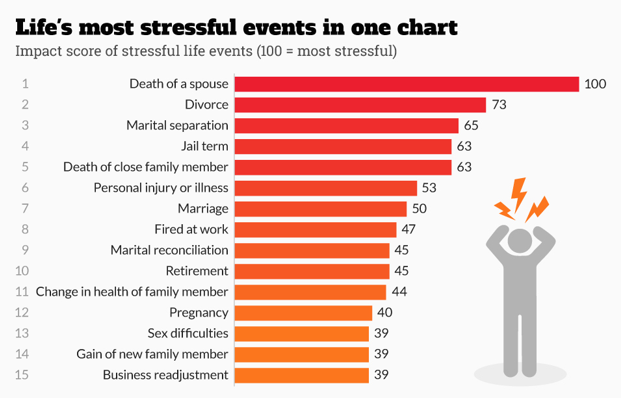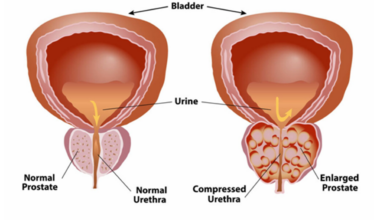“You never have to suffer due to, or be denatured by, another person, even someone you love.”– Rossana Condoleo
The process of divorce has a strong negative impact on the psycho-emotional sphere of people. After a divorce, you may face the following manifestations of emotional and psychological disorders.
Increased Risk of Depression
Studies have shown that people who have gone through a divorce are more likely to experience symptoms of depression than those who are happily married or single. The impact of divorce on mental health can depend on several factors, such as
- age at the time of divorce
- the duration of the marriage;
- the level of conflict during the process.
One possible explanation for why divorce increases the risk of depression in later life is due to lifestyle changes after the end of the marriage.
For example, divorced individuals may no longer have access to social networks or may struggle with feelings of inadequacy as they adjust to a new life alone. These changes can lead to feelings of sadness or hopelessness, which can eventually develop into clinical depression if left untreated.
Read Also: Recognizing Depression: 11 Key Symptoms to Watch For
Higher Incidence of Anxiety Disorders
For many people, their spouse has been their primary source of emotional support and companionship, and without this relationship, they may feel more isolated or lonely. This isolation can lead to feelings of uncertainty or insecurity, which can eventually develop into an anxiety disorder.
Another factor that can cause anxiety disorders among divorced people is stress-related changes in brain chemical reactions. Chronic stress caused by prolonged conflict during marriage or after divorce can hurt the body’s stress response system. Over time, these changes can lead to an overactive response system, resulting in chronic feelings of fear or nervousness.
While divorce is an option for some couples when there are irreconcilable differences, it is important to remember the significant impact it can have on mental health and well-being later in life. People must seek appropriate professional help when they experience any adverse effects on their mental health, as early intervention significantly improves prognosis.
See Also: Molecular Hydrogen Against Oxidative Stress
More likely to Feel Lonely and Isolated
There are several negative consequences associated with divorce that significantly impact mental health:
- higher rates of depression or anxiety disorders;
- feelings of loneliness or isolation.
It is important for people going through this difficult time to remember that they are not alone and to seek help if needed. There are many resources available today, both online (support groups) and offline (counseling services).
Read Also: 8 Ways For Supporting Loved Ones in Mental Health Crisis
Higher Likelihood of Substance Abuse
Substance abuse during this difficult time can exacerbate underlying issues related to divorce, such as financial instability and child custody, making it difficult for people to effectively manage their stress levels. This often creates additional problems that only exacerbate an already stressful situation. These consequences include:
- legal problems due to driving under the influence (DUI);
- job loss due to poor performance at work;
- social isolation from friends and family who do not approve of drug use, etc.
A cheap divorce in Missouri can be emotionally devastating for some people, as it increases the risk of developing mental health conditions such as depression and anxiety disorders, as well as increased feelings of loneliness or isolation, which can drive people to engage in self-destructive behaviors, including substance abuse. Seeking professional support during this challenging time is crucial to effectively deal with these symptoms so that you can move forward with your life in a positive way.
See Also: Comprehensive Guide to Parental Leave
Low Self-esteem
Another significant impact of divorce on mental health is lowered self-esteem and self-worth. Divorce can be a difficult experience that can leave people feeling emotionally drained, vulnerable, and worthless. Often, people going through this stage in their lives feel that they have failed, leading to feelings of inadequacy.
Divorce can also cause changes in family dynamics, as children will live with only one parent, forcing the other to remain distant, especially if custody battles are contentious. This loss of contact with children can further reduce self-esteem, and people begin to doubt their parenting abilities.
It is very important to seek support during this difficult period – from friends, family members, or by seeking the services of professional psychotherapists. This can help people effectively overcome these negative emotions while restoring their confidence and self-esteem.
Read Also: 50+ Family Disappointment Quotes to Think About
Negative impact on physical health
Long-term exposure to high levels of stress hormones such as cortisol puts people at risk for several serious health conditions, such as cardiovascular disease and stroke. People should take proactive steps to maintain their overall well-being, such as regular exercise or other stress-relieving measures.
For example, the statistics below show that divorce is the second most stressful event in a person’s life:
People must be aware of the impact of divorce on their mental and physical health. Seeking appropriate help during this difficult time is crucial not only to prevent mental illness but also to reduce the likelihood of developing serious health problems later on.
Increased risk of cognitive decline
Divorced individuals may experience financial hardship, which can lead to limited access to healthy food or health care. They are more likely to engage in unhealthy behaviors, such as smoking or drinking alcohol, as a way of coping with the stress of their situation. Over time, these factors can contribute to cognitive decline.
Another factor that may contribute to the increased risk of cognitive decline among divorced people is social isolation. They usually lose touch with friends and family members with whom they used to spend time regularly. Without these relationships, people are at risk for depression and anxiety disorders, which increases the likelihood of cognitive impairment.
Divorce can have significant long-term effects on mental health and well-being, including
- increased risk of depression or anxiety disorders;
- feelings of loneliness and isolation
- increased chance of cognitive decline in later life.
Therefore, it is important not only to seek professional help but also to maintain supportive relationships throughout the process when necessary.
Higher rates of suicidal thoughts and attempts
Going through a divorce is difficult, and for some people, it can lead to serious mental health consequences such as suicidal thoughts or attempts.
Research has shown that people who have gone through this process are at an increased risk of suicide compared to those who have remained married. It is important to note that not everyone going through a divorce will experience suicidal thoughts or behavior, but the risk is significant enough to warrant attention.
One possible explanation for why divorced people are more likely to experience suicidal thoughts or attempts is related to the loss of identity and purpose. For many people, their marriage was a central aspect of their identity and gave them a sense of direction in life. The sudden loss of this relationship can lead them to feel lost or hopeless about the future, which can increase feelings of despair and hopelessness over time if left untreated.
People must seek appropriate professional help as early as possible, as early intervention significantly improves prognosis. Seeking the support of loved ones or joining support groups or counseling services has additional benefits during this difficult time.
Difficulties in forming new relationships later in life
Coping with divorce can be difficult, and for some people, the effects of divorce on mental health can continue into later life. For many divorced people, it can be difficult to start a new romantic relationship due to feelings of mistrust or fear of being hurt again. These feelings are often compounded by the sense of loss and grief that comes with the end of a long-term relationship.
When someone has been married for a long period, they are likely used to sharing daily activities and routines with their partner. After a divorce, it is not uncommon for people to find it difficult to adjust to living on their own. This can lead to additional difficulties in forming new relationships.
It is important to note that these difficulties are normal and there is no set timetable for a complete recovery from divorce. One of the positive effects of divorce can be the opportunity for personal growth and self-discovery as individuals navigate through the challenges and learn to prioritize their well-being. Seeking support from friends, family members, or professional counseling services will ease the recovery process and help you move forward positively.












